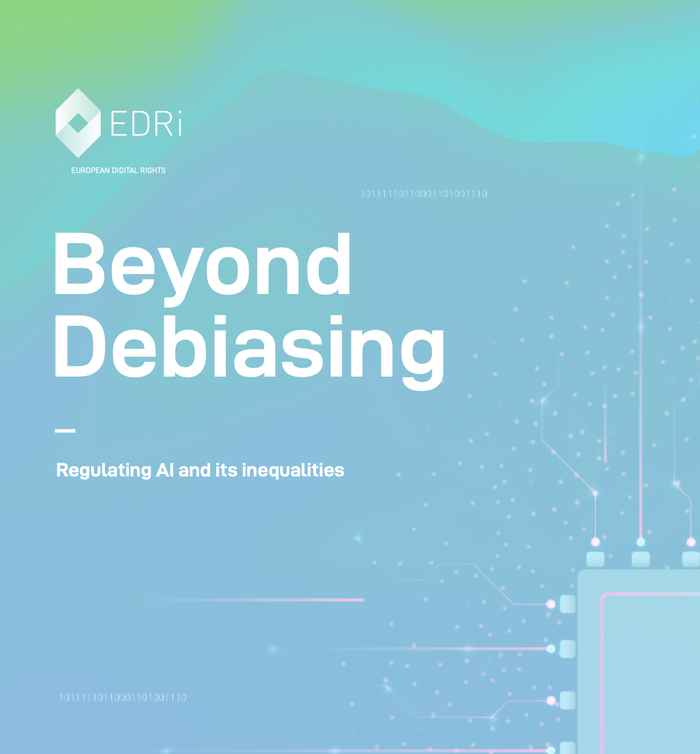PEPTalk #12: Beyond Debiasing: Tackling AI and its Inequalities
Online via Zoom
- Date
- 3 March 2022
- Time
- 13:00
For the zoom link, please send an email to pept@uva.nl.

AI-driven systems have broad social and economic impacts and demonstrably exacerbate structural discrimination and inequalities. For the most part, regulators have responded by narrowly focusing on the technocentric solution of debiasing algorithms and datasets. By doing so, regulators risk creating a bigger problem for both AI governance and democracy because this narrow approach squeezes complex socio-technical problems into the domain of design and thus into the hands of technology companies. By largely ignoring the costly and extractive production environments that machine learning requires, regulators condone an expansionist model of computational infrastructures (clouds, mobile phones, and sensor networks) driven by Big Tech. Effective solutions require bold regulations that target the root of power imbalances inherent to the pervasive deployment of AI-driven systems.
In this session, we will give a brief overview of our report Beyond Debiasing: Regulating AI and its Inequalities* produced for the European Digital Rights Association (EDRi). We then look forward to a discussion with the participants ranging on topics from what bias and debiasing mean in the context of AI-driven systems, limitations of the bias framework and its use in European regulation, all the way to more constructive framings of AI that may aid different actors to articulate, engage and regulate the inequalities inherent to AI driven systems as they manifest themselves today.
*You can find the full report below. We encourage participants to skim the Executive Summary before our session.
Speakers
Seda Gürses is currently an Associate Professor in the Department of Multi-Actor Systems at TU Delft at the Faculty of Technology Policy and Management, an affiliate at the COSIC Group at the Department of Electrical Engineering (ESAT), KU Leuven, and a member of Constant VZW, a Brussels based feminist arts collective. Together with Miriyam Aouragh, Helen Pritchard and Femke Snelting, Seda recently founded The Institute for Technology in the Public Interest. Her work focuses on privacy enhancing and protective optimization technologies (PETs and POTs), privacy engineering, as well as questions around software infrastructures, social justice and political economy as they intersect with computer science.
Agathe Balayn is a PhD candidate at the Web Information Systems group of the Faculty of Engineering, Mathematics, and Computer Science (EEMCS/EWI), at TU Delft. Her research is focused on uncovering and understanding some of the harms and safety issues that the deployment of machine learning systems into society can raise, such as unfairness from systems’ outputs, data misrepresentations, disparities in production. For that, she takes a mixed method approach, based on systematic literature surveys, empirical studies with practitioner interviews and simulated systems, and development of new explainability and debugging methods.
Marjolein Lanzing is Assistant Professor Philosophy of Technology at the University of Amsterdam. She finished her PhD-research 'The Transparent Self': A Normative Investigation of Changing Selves and Relationships in the Age of the Quantified Self at the 4TU Center for Ethics and Technology (University of Technology Eindhoven).
[Save the date!: April 7, 12:00 PM: Digital societies and the ideal of transparency featuring Lea Watzinger]